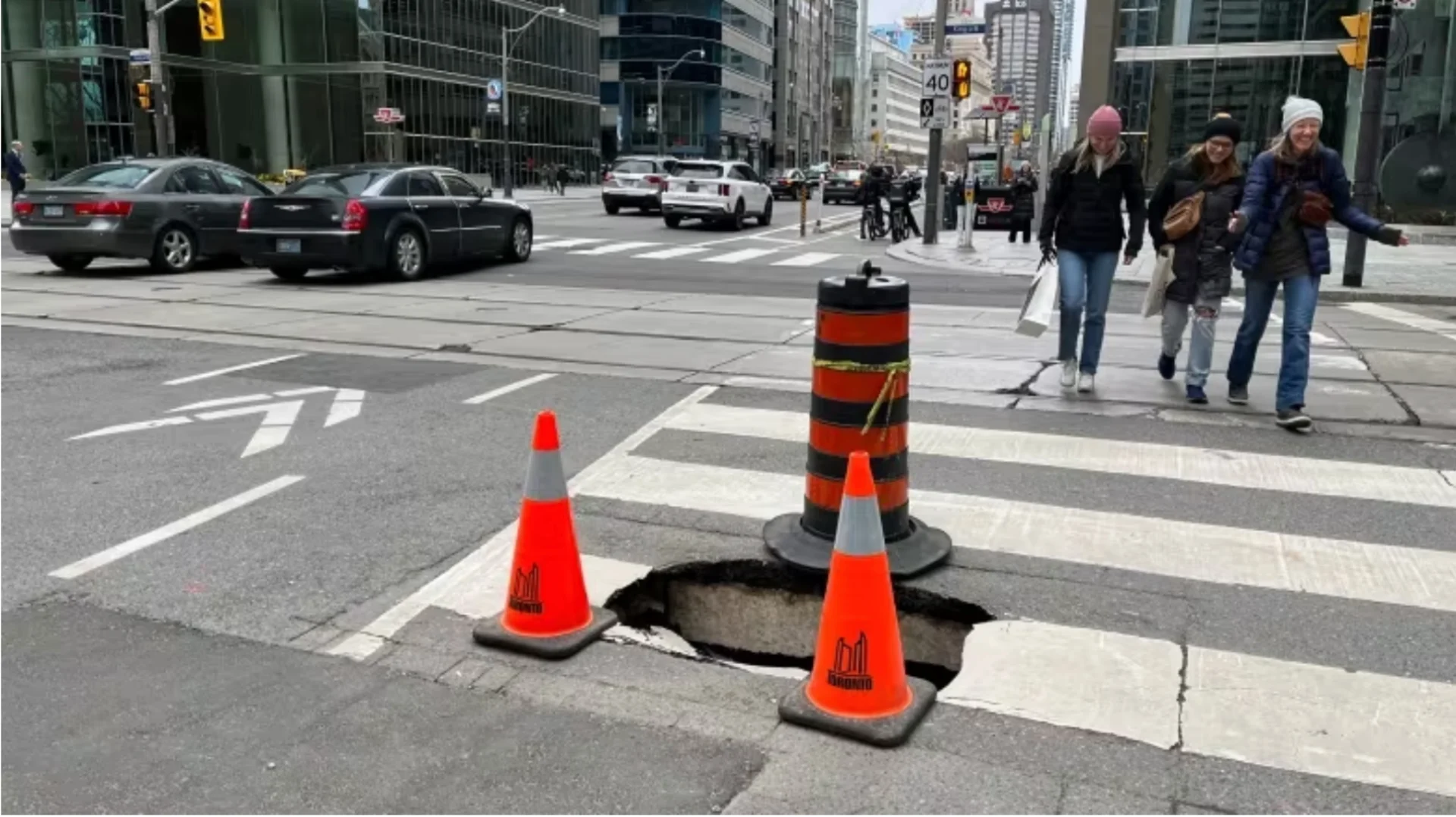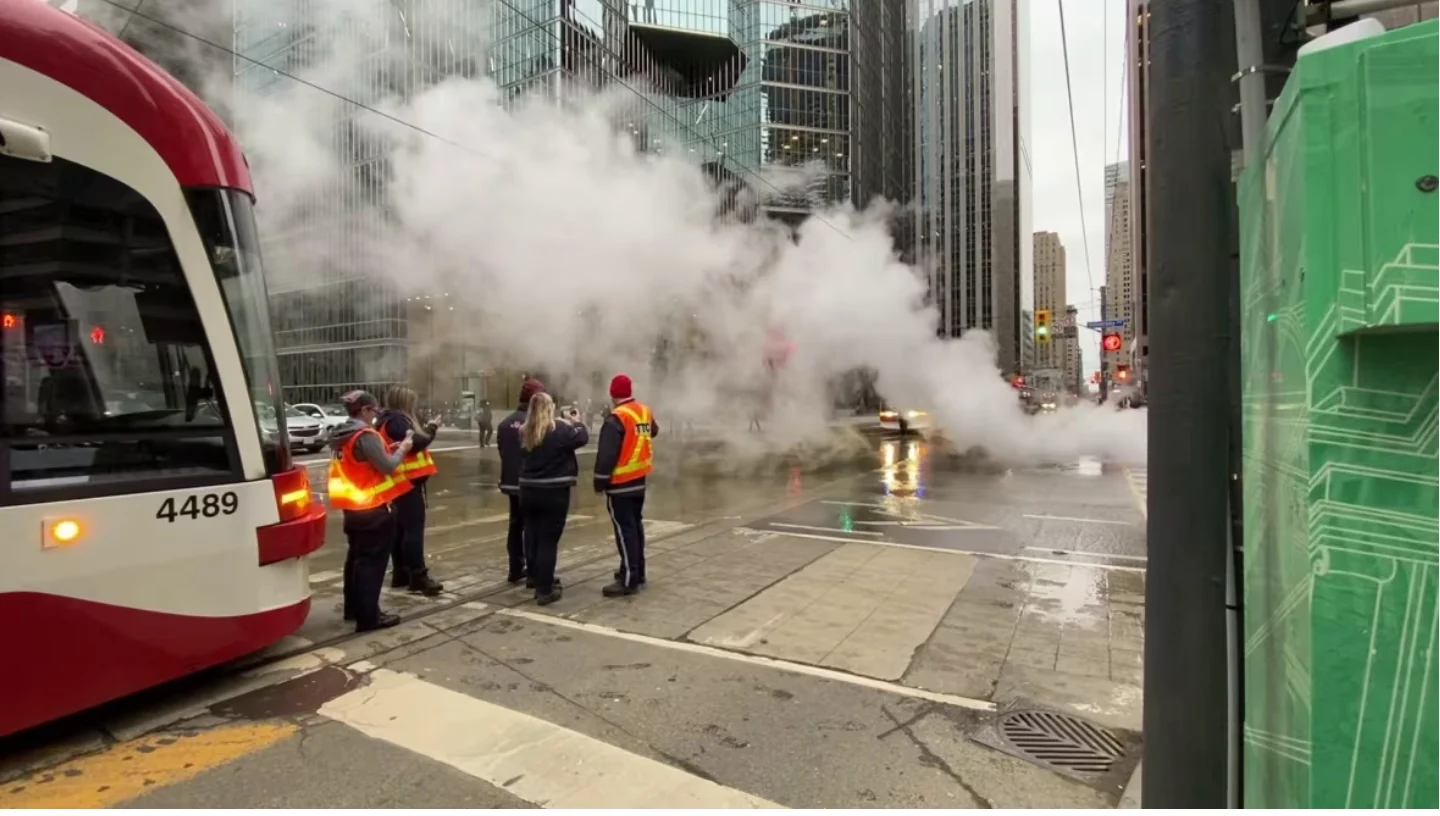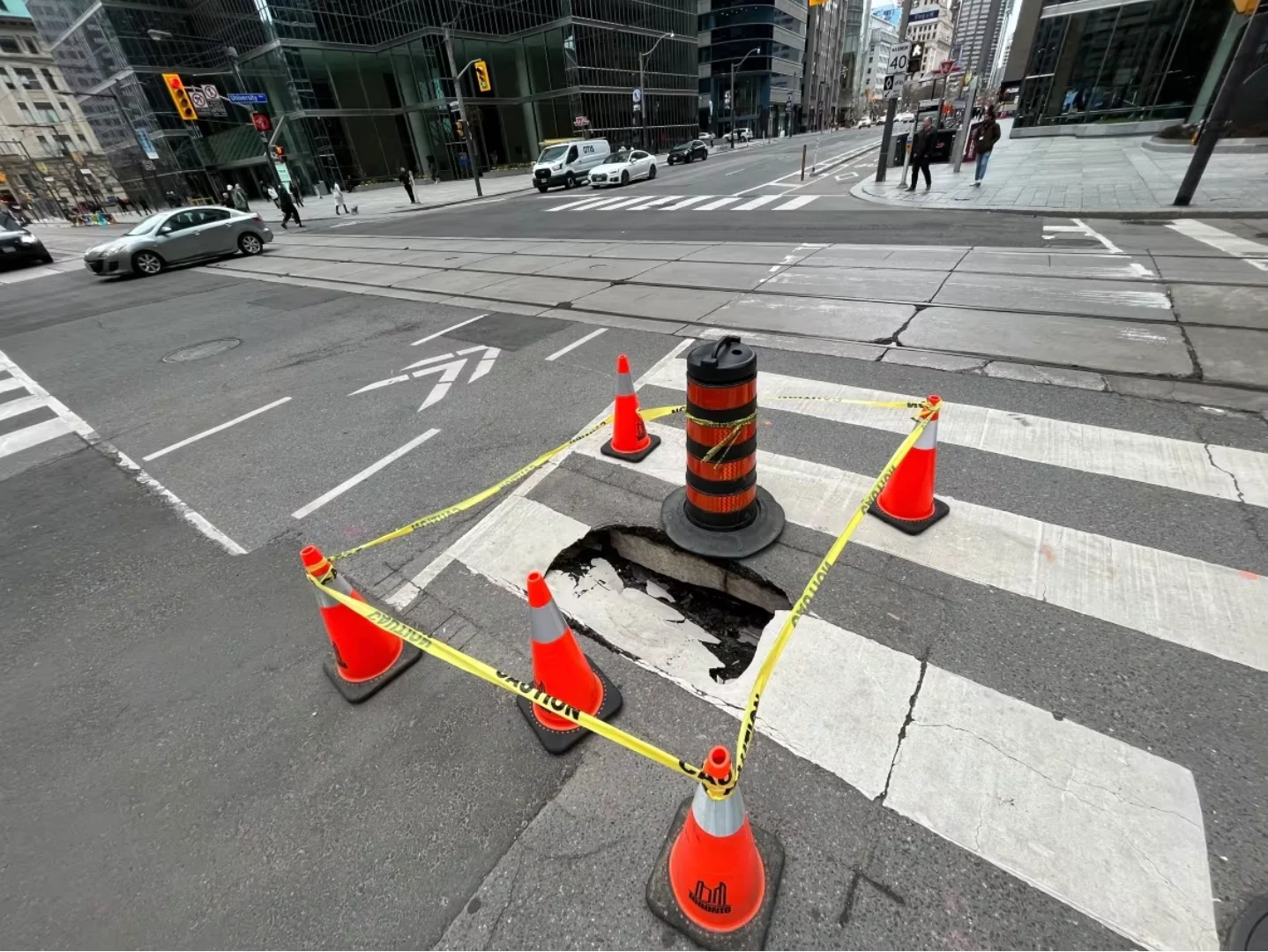
Sinkhole opens up at busy downtown Toronto intersection
City of Toronto crews are working to repair a sinkhole that's opened up at a busy intersection in the financial district.
The crater is located on the north-south crosswalk on the east side of King Street West at University Avenue. It's about a metre long, half a metre wide and is deep enough to fit a beer keg.
Pedestrians, cyclists, motorists and bus drivers could all be seen manoeuvring around the sinkhole during morning traffic on Tuesday.
"This is awful. It's really scary, actually, for me," said Carole Rosenstein, as she attempted to hail a cab after leaving a dentist appointment nearby.
"I have a walker ... I would walk around it. But other people might not even see it."

When a CBC reporter arrived at the intersection Tuesday morning, a cylindrical, barrel-style pylon stuck diagonally into the sinkhole was the only sign of a hazard. (Ryan Patrick Jones/CBC)
RELATED: The science of sinkholes. How do they form and why?
Maxwell Johnson, who works in the area, said the sinkhole shows the declining state of city infrastructure.
"The construction has been neglected for a long time," he said. "It's something that we need to take care of as soon as possible."
Same intersection closed earlier this year
The same intersection was closed for two weeks earlier this year after a water main burst, bringing vehicle traffic and transit through the intersection to a halt.
According to a Feb. 3 news release, the city discovered the break on Jan. 21.
"City crews worked around the clock to repair 25 metres of a 300-millimetre diameter water main and to fill a void that was created under TTC tracks due to the water main break," the release said.
The work saw the replacement of a cast-iron pipe that was originally installed 140 years ago, a spokesperson for Toronto Water told CBC Toronto at the time. Work was completed, roads reopened and transit resumed by Feb. 3.

The intersection of King Street West and University Avenue closed for two weeks earlier this year while crews repaired a burst water main. (Caleb Isaac/CBC)
Hidden Underworld: Diving deep into Toronto’s underground sewer system
Bijoy Benny said he walks by the intersection every day on his way to work.
"The road was blocked for two weeks. All the drivers were suffering a lot," he said.
"This is the busiest road in this area and it's not supposed to be like this. The authorities should ... take the necessary actions for this in future."
WATCH: Did a water main break near your home? Here's what happens next
Repair expected Wednesday
When a CBC Toronto reporter arrived at the intersection Tuesday morning, a cylindrical, barrel-style pylon stuck diagonally into the crater was the only sign to passing drivers, cyclists and pedestrians of a hazard.
An hour after CBC inquired with the city about the sinkhole and sent a photo, a city crew arrived to add more pylons and caution tape around the sinkhole.
The city declined an interview request, but a spokesperson said in a statement it isn't connected to the previous water main issue.

City of Toronto workers placed additional pilons around the sinkhole Tuesday as they prepared to fill it with gravel. (Ryan Patrick Jones/CBC)
"A mix of warm weather, rain and ground movement likely created this hole," the spokesperson said in an email.
According to the city, workers planned to fill the hole with gravel Tuesday and will re-pave it Wednesday if there are no issues.
The city said staff perform "proactive daily patrols" to identify and fix potholes, and the city has repaired more than 63,000 potholes since the beginning of the year.
This article was originally published for CBC News.